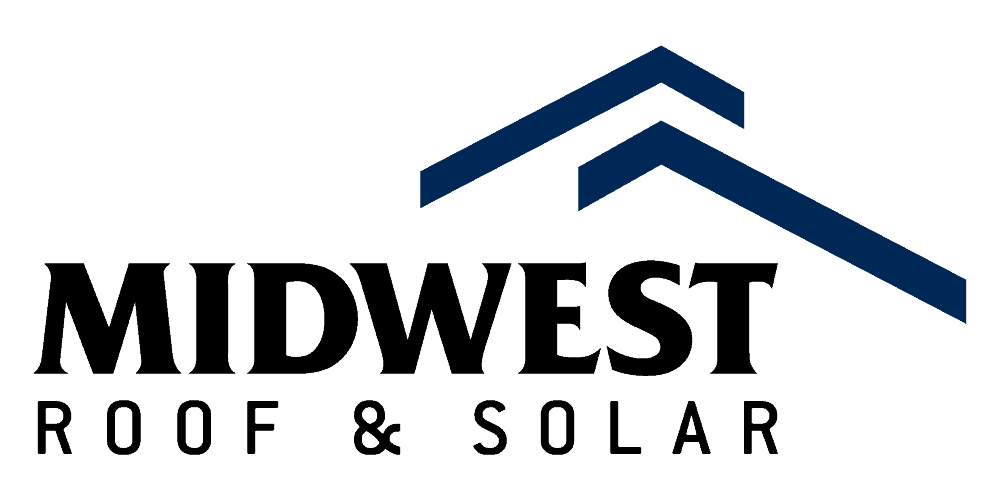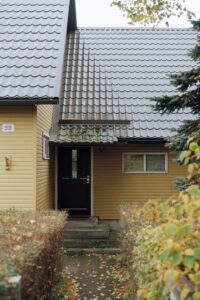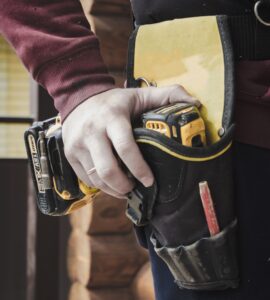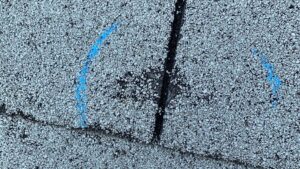If you own a commercial property in Minneapolis, scheduling roof maintenance should be a regular item on your to-do list. Due to the low-slope design of most commercial roofs, more maintenance is required to keep them in top condition when compared to residential roofs.
Here, you can learn more about the maintenance requirements for commercial roofing systems in the Twin Cities. By properly maintaining your commercial roof, you can reduce repair expenses and ensure that the roof lasts for its full lifespan.
How is Commercial Roofing Different?
A few key factors separate commercial roofing from residential roofing. For one, while residential roofs are almost always sloped, commercial properties usually feature low-slope roofing systems. Low-slope or “flat” roofs have only a slight slope and usually look completely flat to the eye. You can safely walk on a low-slope roof and even use the roof’s square footage for seating, an outdoor air conditioner, etc.
In addition to this fundamental difference, commercial roofs are usually made with different materials than residential roofs. Asphalt shingles, slate tiles, and metal are common roofing material choices for residential applications. The most common material options for commercial roofs are quite different, mainly including:
- Modified bitumen
- Build-up
- Gravel
- Concrete
- Tar
Commercial roofs also often need more maintenance than residential roofs. This is due to the low-slope design. With a minimal slope, a commercial roof will receive more direct sunlight and is more susceptible to the accumulation of debris. Pooled water is also more common with low-slope roofing systems, making the risk of a leak significantly higher with commercial roofs. To make up for these heightened risks, more frequent inspections and maintenance are required for commercial roofs than for residential roofs.
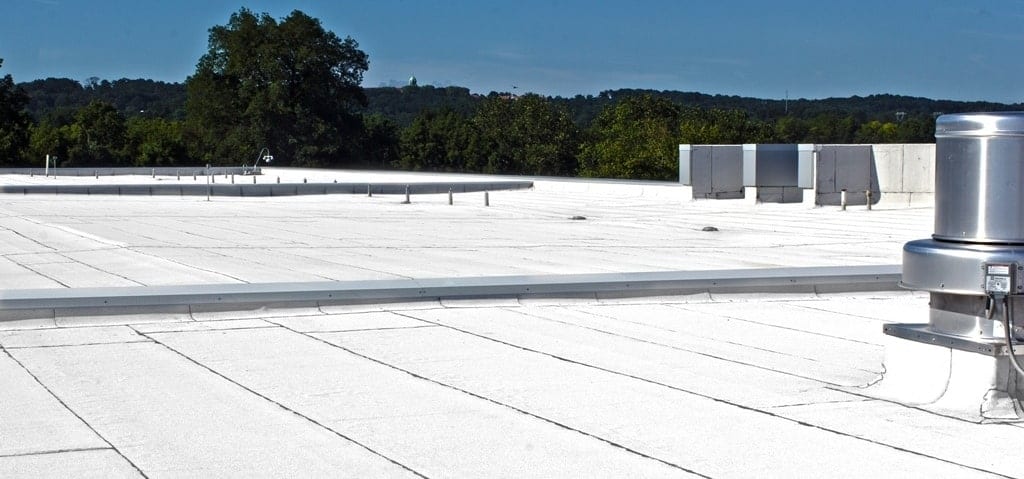
Inspections For Commercial Roofs
When it comes to inspections for commercial roofing systems, we recommend two per year. Commercial roof inspections at this frequency will help promptly identify any risks for damage. Additionally, biannual roofing inspections will give you ample time to have your commercial roof repaired before the damage escalates to an extreme degree.
Well-Timed Roof Inspections
The timing of your commercial roof inspections is equally as important as the frequency. One inspection in the spring and one in the fall is recommended, as the weather during these seasons is usually the least extreme. Additionally, by having your roof inspected in these milder seasons, you can ensure that your roofing system is prepared for the harsher weather to come. Given that late spring and summer can make for destructive hailstorms in St. Louis Park, we recommend that you schedule the first inspection of the year in the early spring (March or early April).

Commercial Roof Maintenance For Longevity
Unfortunately, many roofing systems in St. Louis Park and around the country must be replaced prematurely due to insufficient maintenance. Maintenance will help your commercial roof reach its full lifespan by identifying problems before they become severe. If a roofing issue is caught early enough on, it can usually be resolved without serious implications. So, while you may be tempted to procrastinate on commercial roof inspections, remember: completing roof inspections now will spare you from having to complete more costly repairs down the line.
What Commercial Roof Maintenance Entails
Commercial roof maintenance should include a combination of roof inspections and repairs for minor repairs/wear and tear as needed. Together, these maintenance tasks will protect the condition of your commercial roof so that it can last for the duration of its expected lifespan.
During a commercial roof inspection, your Minneapolis roofing inspector will inspect the following areas of your roof:
- Gutter system
- Drainage pipes
- Decking
- Vents
- Flashing
- Surface membranes
By inspecting these areas of your roof, the inspector can identify water stains, rot, cracks, dents, and other signs of damage.
Next, your inspector will look over any debris that’s accumulated on the surface of your roof. Debris can get stuck in hard-to-see places, so a sharp eye will be helpful in determining your roof cleaning needs. Leaves, branches, litter, and other types of debris will need to be removed from your roof to prevent damage.
For more information about commercial roof maintenance, contact Midwest Construction in Minneapolis today.

